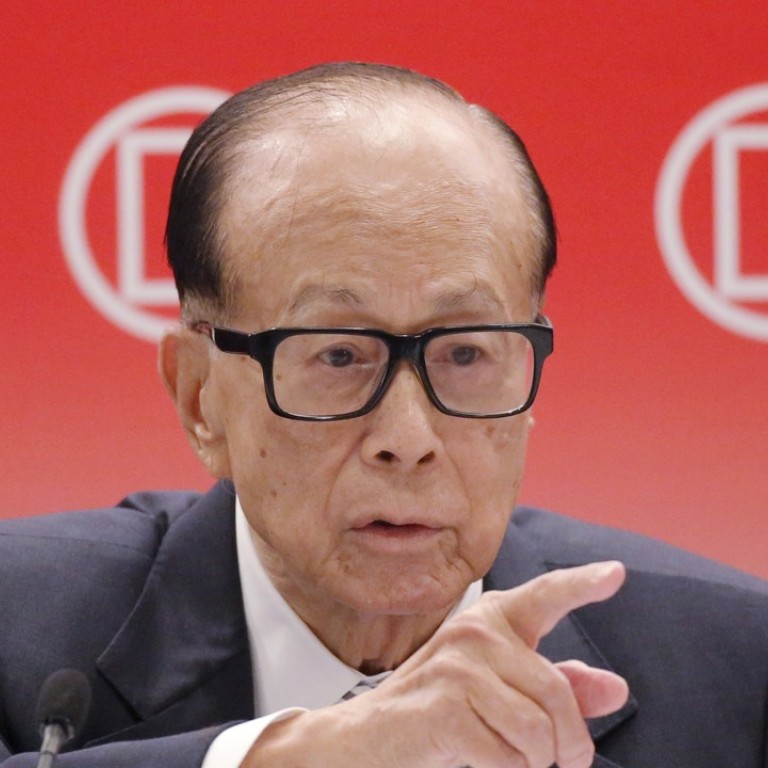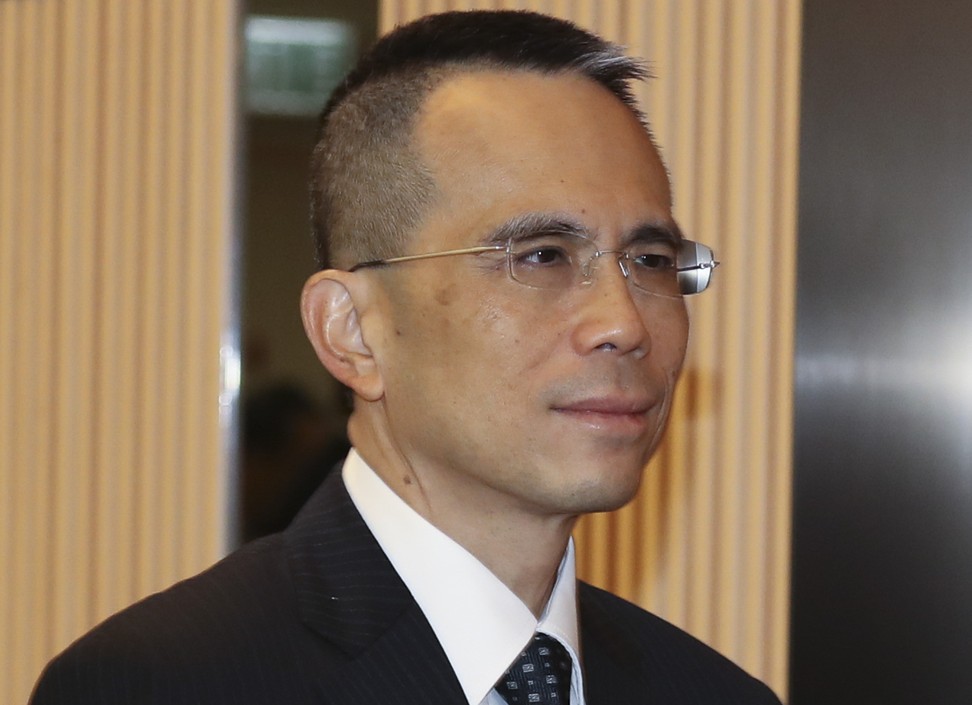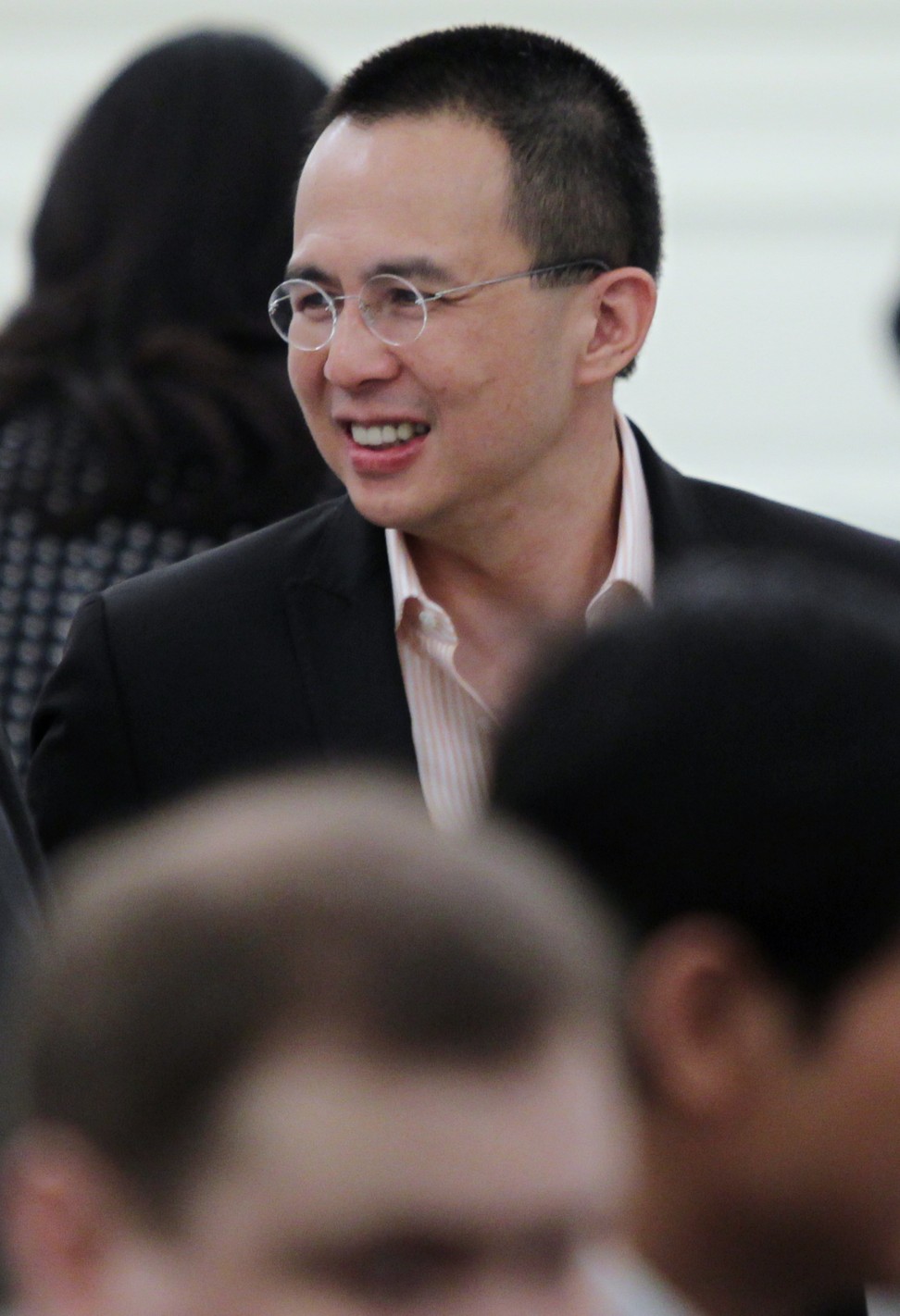
Li Ka-shing says elder son Victor will be his successor in principle
Billionaire, who turns 89 in July, said his younger son Richard Li Tzar-kai is engaged in different business of his own, which continues growing
Billionaire Li Ka-shing, for decades one of the world’s wealthiest tycoons, has named his elder son Victor Li Tzar-kuoi as his successor in principle, a day after the Cheung Kong group clarified that he had “no concrete timetable” to retire from the global conglomerate.
Li, who turns 89 in July, said his younger son Richard Li Tzar-kai is engaged in different business of his own, which continues growing.
“Arrangement for the group’s business has been well prepared. They (Victor and Richard) have their own businesses,” he told the media outside his home in Clearwater Bay in Hong Kong on Wednesday morning.
Li’s appointment of a clear successor is an extension of his 2010 plan to split his business empire between his two sons. The Cheung Kong companies, making up about 4 per cent of Hong Kong’s stock market capitalisation, has businesses in property, telecommunications, retailing, utilities and container ports.
Known in Hong Kong as “Superman Li” for his knack of building empires out of ordinary businesses, the succession of the city’s wealthiest family is a closely watched affair, especially since Cheung Kong’s range of businesses touches a substantial aspect of the Hongkonger’s daily life.
To be sure, Li appears to be in robust health, appearing as he does every year during Cheung Kong’s annual general meeting to answer media questions and ruminate on every subject from real estate to politics.
“My medical check up shows that I’m in good health,” he said. “I will be the group’s senior advisor after I retire and I have lots of other things to do,” he added.

“As for my other son [Richard], there are some things that he is very interested in,” Li Ka-shing said while unveiling the plan at the group’s AGM in 2010. “He will have my full support ... now that he already owns several sizeable companies.
“The asset values of the businesses he owns will go up several times over, so he will also have a very successful career. And there will be no conflict among their businesses.”
Shares in Li’s companies little change after the statement. CK Hutchison stayed unchanged at HK$98.5 while Cheung Kong Property fell 0.16 per cent to close at HK$61.75.

Hong Kong Institute of Investors chairman Ricky Tam said Li’s succession plan of not forcing two of his sons to work in the listed companies would avoid potential disputes in future.
“Traditionally, rich families want all their sons working at their companies to ensure a smooth transition to the next generation,” he said. However, the elder Li thinks differently.
Li had put more emphasis on building up a team of professional executives to run and expand the group into a global conglomerate, said Tam.
“What the group need is just one decision maker and Victor is chosen to be the one,” he said.
His younger son controls PCCW, the media and information technology services giant, which does not create direct competition with CK Hutchsion and CK Property.
Tam said Li’s succession plan could serve as an example for other families to follow.
It also appears that the elder Li has had Victor’s talents in mind when developing the company’s business strategy.
“We did some research into deals made by Victor Li, and found that he was more successful in developed markets like North America and Western Europe, and to a certain extent Hong Kong, than he was in making deals in India, Indonesia and China,” said Joseph Fan a professor at the Chinese University of Hong Kong, specialising in family business.
“I think this was one of the reasons behind Li Ka-shing’s moves to divest assets in mainland China and invest more in the UK.”


